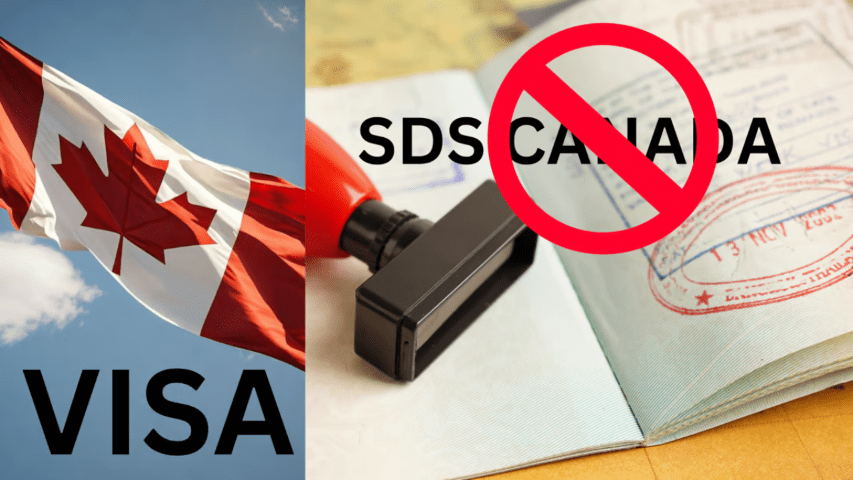

As of November 8, 2024, Immigration, Refugees, and Citizenship Canada (IRCC) has made significant changes to its study permit application process. The most notable change is the discontinuation of the Student Direct Stream (SDS), which previously provided an expedited path for international students from 14 countries, including India, China, Pakistan, and the Philippines. Additionally, the Nigeria Student Express (NSE) stream, a similar initiative for Nigerian students, has also been shut down.
The SDS was introduced in 2018 to help international students from certain countries apply for study permits more quickly. Applicants under this stream were required to meet specific criteria, such as providing language test results and proving that they had opened a Canadian Guaranteed Investment Certificate (GIC) worth $20,635 CAD. These requirements ensured that students had both the language proficiency and financial stability to study in Canada, making the SDS a popular option for those who wanted faster processing times and higher approval rates.
However, with the termination of the SDS, all future study permit applications will now have to go through the standard process. This means that international students will no longer benefit from the streamlined process that the SDS provided, potentially leading to longer waiting periods for study permit approvals.
The standard application process for study permits can vary in processing time depending on the country of origin. For instance, students from India, who were once able to take advantage of the SDS for faster processing, will now face an average wait time of around eight weeks, as of November 8th. This change is expected to affect a large number of international students who were hoping for quicker approval times through the SDS.
The changes come as part of a broader shift in Canada’s approach to managing temporary residents, including international students and work permit holders. Over the past year, the federal government has introduced several measures to control the number of temporary residents in the country. One major step taken by the IRCC is the implementation of a cap on new study permits. By 2025, the number of new study permits issued will be capped at 437,000, which includes students pursuing master’s and PhD programs.
In addition to the cap on study permits, the IRCC has also introduced new eligibility requirements for students who wish to apply for a Post-Graduation Work Permit (PGWP). These new requirements pertain to language proficiency and field of study, meaning that only certain students will be eligible to stay in Canada and work after completing their studies.
Another major change that has been introduced is the limitation on work permits for spouses of international students. Previously, spouses were often able to obtain work permits while their partners studied in Canada, but this opportunity will now be more restricted.
Lastly, the cost-of-living requirement for international students applying for study permits has been updated, reflecting the rising expenses of living in Canada. This change will likely impact the financial planning of students looking to study in the country, as they will need to prove they can meet the higher cost of living before being granted a study permit.
Having an 'Identity Verified' badge or being 'Identity Verified' simply indicates that an individual has submitted information to complete our identity verification process or we have conducted internal verification using various authorized websites. While this process includes safeguards, it does not guarantee that the person is who they claim to be.
If you encounter any issues with this profile, please report them here. While all consultants who are verified have RCIC ID, we may not have the latest data in terms of their renewal/cancellation/discontinuation of their RCIC ID.
The "Verified Consultants" profiles are created using publicly available information, including data from the IRCC website, official consultant sites, other listing platforms, and social media. Immiperts.com is an independent platform, not affiliated with IRCC or any registered immigration consultants. To update, claim, or remove your profile, please contact us at [email protected].
╳